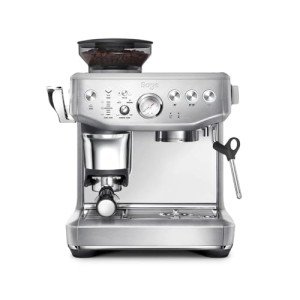A Reference To Best Espresso Machines From Beginning To End
Best Espresso Machines: A Comprehensive Guide
Espresso machines have ended up being a staple in coffee culture, drawing in lovers and casual drinkers alike. The ideal shot of espresso can elevate the coffee experience, and choosing the best machine is vital for accomplishing this goal. This short article looks into the world of espresso machines, exploring some of the very best choices readily available on the marketplace today. It will cover the kinds of machines, crucial functions to consider, a comparison table, and often asked concerns.
Types of Espresso Machines
Before venturing into particular products, it's necessary to comprehend the different types of espresso machines available:
Manual Machines: Also called lever machines, these need the user to by hand manage the pressure and flow of water. They offer a hands-on experience but need more ability.
Semi-Automatic Machines: These machines automate the pressure and temperature, while allowing users to control the shot timing. They are perfect for those who wish to take control without needing too much effort.
Automatic Machines: These devices automate the brewing procedure completely; users simply select the size and strength of the shot. Great for beginners.
Super-Automatic Machines: This type grinds the beans, tamps, brews, and even froths milk automatically. They're excellent for benefit, making them appropriate for those who want speed without compromising quality.
Capsule Machines: Utilizing pre-packaged coffee pods, these are the most basic machines for making espresso. While convenient, they typically lack the depth of flavor discovered in newly ground beans.
Secret Features to Consider
When looking for the best espresso machine, several essential functions should direct your choice:
Pressure: The ideal pressure for an espresso machine is 9 bars. This pressure is crucial for drawing out flavors successfully.
Temperature Control: Consistent water temperature is crucial for an excellent espresso. Try to find machines with PID (Proportional Integral Derivative) temperature control.
Build Quality: Machines made from high-quality materials tend to last longer and provide a better experience.
Size and Footprint: Consider your available counter area. Some machines are compact, while others need considerable space.
Grinder Quality: An integrated grinder provides convenience, but the quality of the grinder affects the final taste. Doser or doserless types alter the taste profile substantially.
Reduce of Use and Cleaning: Consider how easy the machine is to clean and maintain. Machines with removable parts usually provide simpler cleaning.
Contrast Table of Best Espresso Machines
Here's a contrast table showcasing a few of the most suggested espresso machines based on numerous user reviews and professional scores:
Espresso Machine
Type
Pressure (Bars)
PID Control
Grinder Type
Price Range
Breville Barista Express
Semi-Automatic
9
Yes
Cone-shaped burr grinder
₤ 600 – ₤ 700
De'Longhi EC155
Manual
15
No
No grinder
₤ 100 – ₤ 150
Rancilio Silvia
Semi-Automatic
9
No
No grinder
₤ 700 – ₤ 800
Saeco Xelsis
Super-Automatic
15
Yes
Integrated grinder
₤ 1,000 – ₤ 1,500
Nespresso VertuoPlus
Pill
N/A
No
No grinder
₤ 150 – ₤ 200
Gaggia Classic Pro
Semi-Automatic
9
Yes
No grinder
₤ 400 – ₤ 500
Summary of Best Espresso Machines
- For Beginners: The De'Longhi EC155 is an exceptional starting point due to its affordable rate and ease of use.
- For Serious Enthusiasts: The Rancilio Silvia offers a balance in between quality and control, attracting those who want to refine their barista abilities.
- For Convenience: The Saeco Xelsis sticks out as a top super-automatic option, best for users looking for maximum ease without jeopardizing taste.
Regularly Asked Questions (FAQs)
Q1: What is the very best pressure for extracting espresso?A1: The perfect pressure is 9 bars; this pressure level is optimal for drawing out the tastes in espresso.
Q2: How often should I clean my espresso machine?A2: Regular cleaning is essential. For machines with built-in grinders, it is best to clean them after every use. Deep cleaning should be done weekly or month-to-month depending upon use and design.
Q3: Can I use routine coffee in an espresso machine?A3: Espresso is made from finely ground coffee, preferably roasted specifically for espresso. While click to read can use regular coffee, the taste and extraction might vary.
Q4: How long can my espresso machine last?A4: With proper care and maintenance, a high-quality espresso machine can last numerous years, even decades.
Q5: What grinder should I use for espresso?A5: A burr grinder is more suitable, as it supplies constant grind size which is important for proper extraction.
The journey to discovering the best espresso machine can be an amazing one, filled with discovery and potential for establishing one's coffee taste buds. Whether going with the simpleness of a pill machine or the control of a manual model, understanding the different types and functions can greatly improve the experience. With advances in innovation and innovation, there's a suitable espresso machine for all choices and ability levels on the market today. Investing in the best machine not only assures terrific taste but also elevates the general coffee experience.
